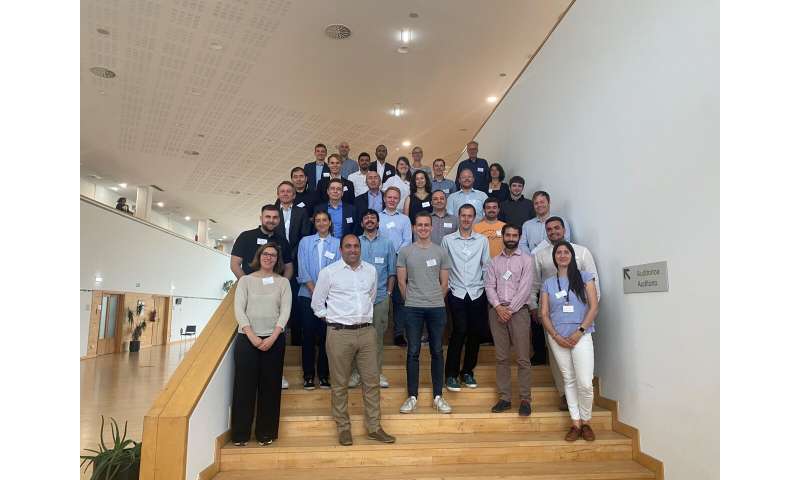Sustainable and digitalised Gigafactory for battery production with made in-Europe machinery

In the first week of July, the GIGABAT project was launched with a kick-off meeting in San Sebastian (Spain), site of the project coordinator CIDETEC.
GIGABAT is an EU-funded project to develop Gigafactories for the efficient production of batteries, based on digitalisation. It aims to reduce the EU's dependency, in this field, on foreign countries, especially Asia, by using made-in-Europe machinery and optimising the battery manufacturing value chain. The project addresses the need for an ecological transition for large-scale battery production, which is an urgent issue due to the emissions associated with the typical inefficient battery production.
Emerging Gigafactories will enable industrial independence and provide the basis for meeting the EU's standards of climate-neutrality under the European Green Deal.
Batteries play a central role in decarbonisation, clean energy transition and sustainable transportation: the project aims to improve their capacity and extend their life-cycle for better efficiency and sustainability.
GIGABAT will explore new ways of digitalising and manufacturing machinery while also adapting the existing ones to its needs and developing a new dynamic industrial ecosystem. The real-time and real-environment functioning of the project's model will be validated at pilot plants which will constitute the starting ground for future implementation and exploitation. The new Gigafactory production plants also aim to promote sustainability, include recyclability targets and improve carbon footprint.
To this end, GIGABAT requires a multidisciplinary approach guiding the process and involving different kinds of expertise. The 16 partners constitute a highly technological and academic consortium, which will cooperate at multiple levels for the success of the project. Their first project meeting included a visit to the facilities of CIDETEC, particularly to the Energy department where the electrophysical engineering research takes place.
Iker Boyano, the project coordinator, stated "We are delighted to coordinate the GIGABAT project, which aims to revolutionise battery manufacturing in Europe through sustainable and digitalized Gigafactories. The teamwork and diversified approach used by the 16 partners will ensure industrial independence by utilising machinery built in Europe and optimising the value chain for the battery manufacturing industry. Together, we will promote innovation, enhance battery sustainability and efficiency, and support the European Union's European Green Deal climate-neutrality goals."
About GIGABAT: The project is titled "Sustainable and digitalized GIGAfactory for BATtery production with made in-Europe machinery". It is coordinated by CIDETEC and it will last 42 months. The project has received funding from the Horizon Europe Framework Projects research and innovation actions within the call for cross-sectoral solutions for the climate transition, under GA 101104094.
Coordinator contact:
Lucas Moreno, Project coordinator
lmoreno@cidetec.es
Iker Boyano
iboyano@cidetec.es
www.energystorage.cidetec.es/en/home
Communication & Press contacts:
Niccolò Belluati, Project Management Officer
Niccolo.belluati@icons.it
Andre Zhulpa Camporesi, Communication Officer
Andre.zhulpacamporesi@icons.it
Provided by iCube Programme